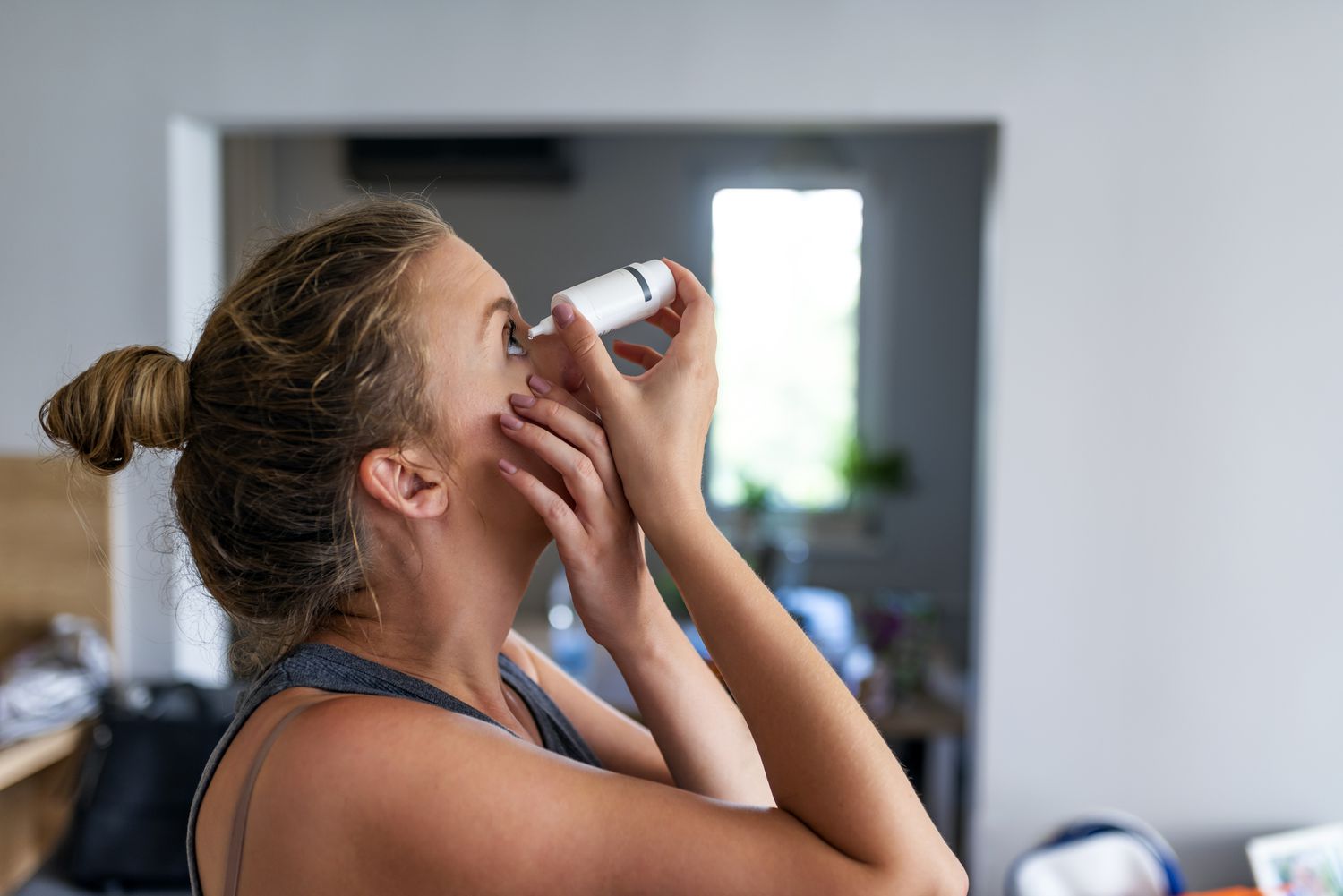Potential Eye Infection Risk: FDA Issues Warning for 27 Eye Drop Products

The Food and Drug Administration (FDA) has recently issued a warning regarding 27 varieties of eye drops available for purchase at well-known retail chains like CVS and Target. The agency cautions that these products might birth eye infections, thereby potentially causing problems with vision.
The FDA has requested the public to desist from using and to dispose of any of these 27 identified eye drop products.
The FDA's probe revealed that these products, which are supposed to maintain sterility, were manufactured in unsanitary conditions. During environmental sampling tests, several areas within the manufacturing unit tested positive for bacterial contamination.
This is the list of the brands under which the 27 eye drop products are retailed:
Cardinal Health, on Wednesday, voluntarily called back six of its eye drop products that are sold under the brand name Leader, five of which were part of the FDA's preliminary warning.
Cardinal Health has claimed receipt of three reports of side effects associated with the recalled eye drops.
The information given below will help identify the affected Cardinal Health eye drops:
The business reported that these products have been distributed across the country since December 12, 2021.
FDA's warning also mentioned other brands, but at this point, there is no specific information about the lot numbers or product codes of those brands, or about their distribution date. However, the FDA has provided a comprehensive list of each product name and its ingredients.
The questionable eye drop products are currently being taken off the shelves at Walmart, CVS, Rite Aid, and Target, and their websites. However, the Leader, Rugby, and Velocity brands may still be accessible for purchase but should be avoided.
Cardinal Health (brand Leader) announced arrangements to collect the recalled products and asked retailers and distributors to halt sales.
Barring three incidents tied to Leader (Cardinal Health) brand eye drops, the FDA has not reported other related eye infections. However, healthcare providers and consumers are urged to record any side effects on the FDA’s MedWatch page.
Loretta Szczotka-Flynn, OD, PhD, professor and director of the vision research coordinating center at Case Western Reserve University School of Medicine, emphasized the importance of keeping manufacturing facilities sterile.
The official recall recommendation was first made by the agency on October 25, followed by its first safety warning issued on Friday. The warning listed 26 eye drop products and the Walmart brand was added on Monday.
This FDA announcement follows a similar warning issued in late August, cautioning consumers against Dr. Berne’s and LightEyez eye drops. Furthermore, in early February, the CDC advised against using EzriCare eye drops following bacterial contamination leading to multiple hospitalizations and a fatality.
According to Szczotka-Flynn, these incidents seem to have prompted greater FDA oversight.
While not officially confirmed, Szczotka-Flynn adds that the FDA appears to be investigating private or less-established eye drop producers more closely.
The FDA highlights how crucial it is for sterility to be maintained, especially when it comes to eye drops, since "drugs applied to the eyes bypass some of the body's natural defenses."
Details regarding the type of bacteria found at the facility or whether any bacteria was present in the eye drops were not disclosed in the recent FDA warning.
Nonetheless, acting in an abundance of caution, the FDA has put forth its warning. Specially, contact lens users, who are prone to bacterial keratitis (an eye infection), should be cautious. In serious cases, this kind of infection may cause blindness or necessitate a corneal transplant.
Usually, according to Szczotka-Flynn, these kinds of infections can be treated with antibiotics.
Again, with these 27 eye drop products named in the FDA warning, people should throw out any of the products they have at home, and should avoid any Leader, Rugby, and Velocity eye drop products that may still be on shelves or online.
In general, however, people don’t need to be wary about using eye drops, Szczotka-Flynn emphasized. These more frequent FDA warnings means that the agency’s oversight investigations are working as they should to prevent any potential health issues.
Larger manufacturers and name-brand eye drop products in particular, Szczotka-Flynn said, have quality control and sterilization practices that are essentially “immaculate.” The risk of any bacterial contamination with these household eye drop brands is low.
“I don’t want people to be worried about artificial tears,” she said. “We prescribe them all the time, and there’s safe, very good artificial tears on the market today.”




